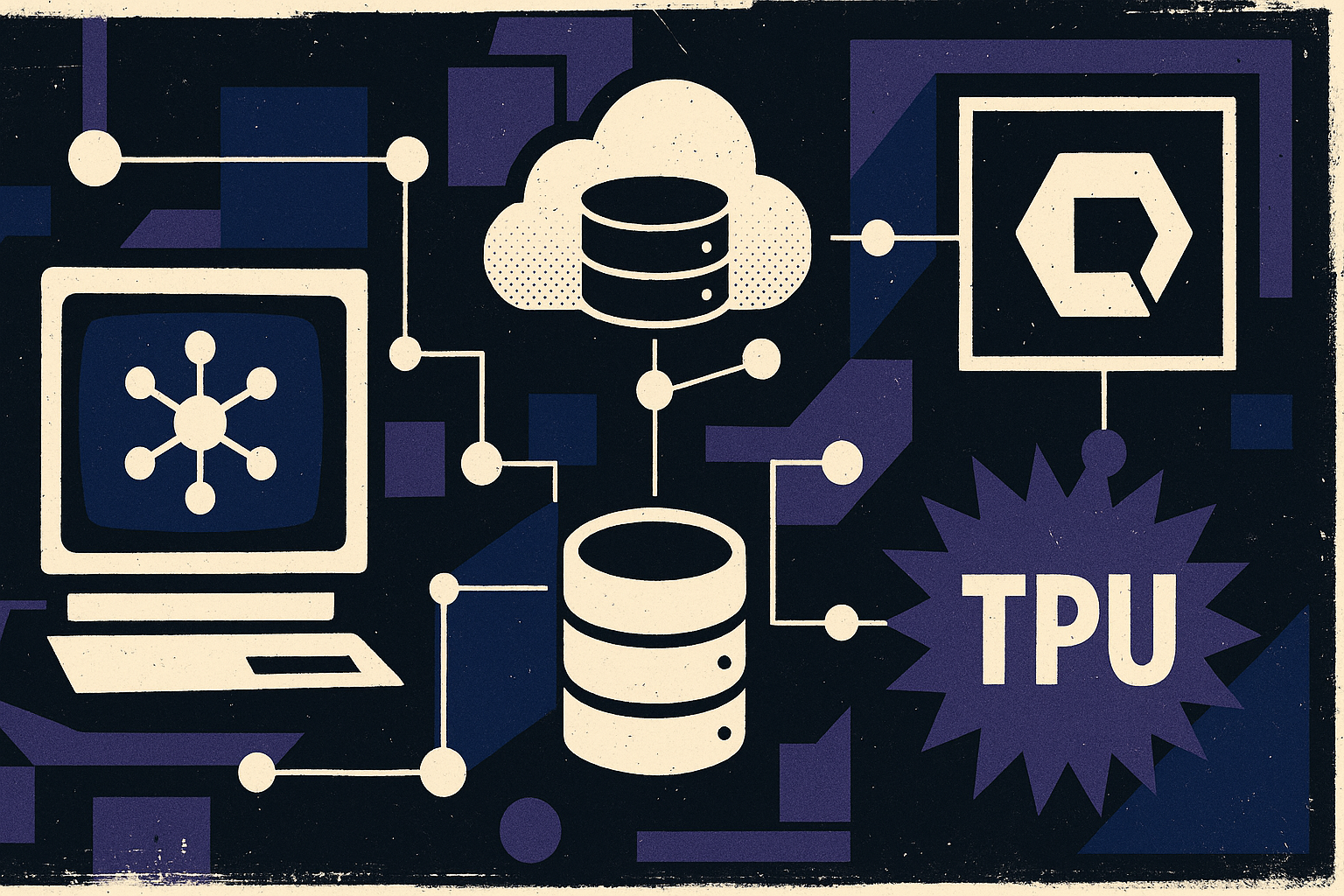
Why Google Cloud Leads in AI-Ready Data Platforms
The Importance of an Integrated Data Platform for AI
In today's fast-paced digital landscape, organizations are increasingly turning to artificial intelligence (AI) to drive innovation and gain a competitive edge. However, the success of AI initiatives heavily relies on the underlying data platform. An integrated data platform is crucial for AI because it ensures seamless data flow, enhances data quality, and provides a unified view of data across the organization. By eliminating data silos and enabling real-time data access, an integrated platform empowers businesses to make data-driven decisions swiftly and accurately.
AI thrives on data—lots of it. For AI models to deliver meaningful insights, they need to be trained on vast and diverse datasets. An integrated data platform consolidates structured and unstructured data from various sources, making it readily available for AI applications. This not only accelerates the training process but also improves the accuracy and relevance of AI models. Moreover, an integrated platform simplifies data governance and compliance, ensuring that data is secure, traceable, and compliant with regulations.
Google Cloud’s Unified Data Ecosystem
Google Cloud stands out in the AI landscape with its robust and comprehensive data ecosystem. By seamlessly integrating infrastructure, analytics, and AI, Google Cloud offers a unified platform that caters to the diverse needs of modern enterprises. The synergy between its components—BigQuery, AlloyDB, Vertex AI, and Gemini—ensures that businesses can deploy AI models at scale, securely, and with unparalleled speed.
BigQuery, Google Cloud's serverless data warehouse, allows organizations to run complex queries on large datasets with ease, providing real-time analytics and insights. AlloyDB, a fully managed database service, enhances data management by offering high availability, scalability, and robust performance. Vertex AI streamlines the entire AI lifecycle, from data preparation and model training to deployment and monitoring. Lastly, Gemini provides cutting-edge infrastructure that powers advanced AI applications, ensuring optimal performance and scalability.
BigQuery: Powering Advanced Analytics
BigQuery is a cornerstone of Google Cloud's data platform, designed to handle massive datasets and deliver real-time analytics. Its serverless architecture eliminates the need for infrastructure management, allowing organizations to focus on extracting insights from their data. BigQuery's fully managed environment supports SQL queries, making it accessible to data analysts and scientists without requiring extensive programming knowledge.
One of BigQuery's standout features is its ability to process petabytes of data at lightning speed. This is achieved through Google Cloud's highly optimized query execution engine, which leverages distributed computing to parallelize workloads. Additionally, BigQuery integrates seamlessly with other Google Cloud services, such as Dataflow for stream processing and Dataproc for batch processing, providing a comprehensive analytics solution.
AlloyDB: Enhancing Data Management
AlloyDB is Google Cloud's high-performance, fully managed database service that enhances data management capabilities. Built on PostgreSQL, AlloyDB combines the reliability and familiarity of an open-source database with Google Cloud's innovative infrastructure. It offers advanced features like automatic scaling, high availability, and strong consistency, making it ideal for mission-critical applications.
AlloyDB's integration with the broader Google Cloud ecosystem ensures seamless data flow between different services. For instance, data from AlloyDB can be easily ingested into BigQuery for advanced analytics or used to train models in Vertex AI. This interconnectedness simplifies data management and reduces operational overhead, allowing organizations to focus on deriving value from their data.
Vertex AI: Streamlining AI Model Deployment
Vertex AI is a unified platform that streamlines the entire AI lifecycle, from data preparation and model training to deployment and monitoring. By integrating various AI tools and services, Vertex AI simplifies the process of building and deploying machine learning models, making it accessible to both novice and experienced data scientists.
Vertex AI supports popular machine learning frameworks like TensorFlow and PyTorch, allowing users to leverage pre-built models or create custom ones. Its built-in AutoML capabilities enable users to automate the process of training and tuning models, reducing the time and effort required to achieve optimal performance. Additionally, Vertex AI provides robust MLOps features, such as model versioning, continuous integration, and monitoring, ensuring that models remain accurate and reliable over time.
Gemini: Elevating AI with Cutting-Edge Infrastructure
Gemini represents Google Cloud's commitment to providing cutting-edge infrastructure for AI applications. Leveraging the power of Tensor Processing Units (TPUs) and Graphics Processing Units (GPUs), Gemini delivers unparalleled performance for training and deploying complex AI models. This high-performance infrastructure is essential for handling the computational demands of modern AI workloads, enabling organizations to achieve faster time-to-insight and greater accuracy in their models.
Gemini's infrastructure is designed to scale seamlessly, accommodating the growing needs of AI-driven enterprises. Whether it's processing vast amounts of data or running resource-intensive simulations, Gemini ensures that organizations have the computational power they need to stay ahead in the AI race. Furthermore, its integration with Google Cloud's data and AI services provides a cohesive environment for developing and deploying AI solutions.
Comparing Google Cloud with Other AI Data Platforms
While there are several AI data platforms available, Google Cloud distinguishes itself through its holistic approach to data and AI integration. Competitors like Amazon Web Services (AWS) and Microsoft Azure offer robust AI capabilities, but Google Cloud's unified stack provides a more seamless and integrated experience. The tight integration between BigQuery, AlloyDB, Vertex AI, and Gemini ensures that data flows effortlessly between services, reducing complexity and improving efficiency.
AWS, for instance, offers a range of AI services like SageMaker for machine learning and Redshift for data warehousing. However, these services often require significant configuration and management effort to work together seamlessly. Similarly, Azure's AI and data services, such as Azure Machine Learning and Azure Synapse Analytics, provide powerful capabilities but may lack the level of integration found in Google Cloud's ecosystem.
Strategic Benefits of a Unified AI Data Stack
The strategic benefits of a unified AI data stack like Google Cloud's are manifold. Firstly, it simplifies data management by providing a cohesive environment where data can be ingested, processed, analyzed, and used to train AI models without the need for complex integrations. This reduces operational overhead and accelerates the deployment of AI solutions.
Secondly, a unified stack ensures data consistency and quality, which are critical for the success of AI initiatives. By centralizing data management and governance, organizations can enforce data quality standards and compliance policies more effectively. This not only improves the reliability of AI models but also enhances trust in the insights they generate.
Lastly, the scalability and performance of Google Cloud's integrated stack enable organizations to handle the growing demands of AI workloads. Whether it's processing massive datasets in real-time or training complex models, Google Cloud's infrastructure is designed to deliver the performance and scalability needed to support advanced AI applications. This positions organizations to innovate faster and stay competitive in an increasingly data-driven world.

